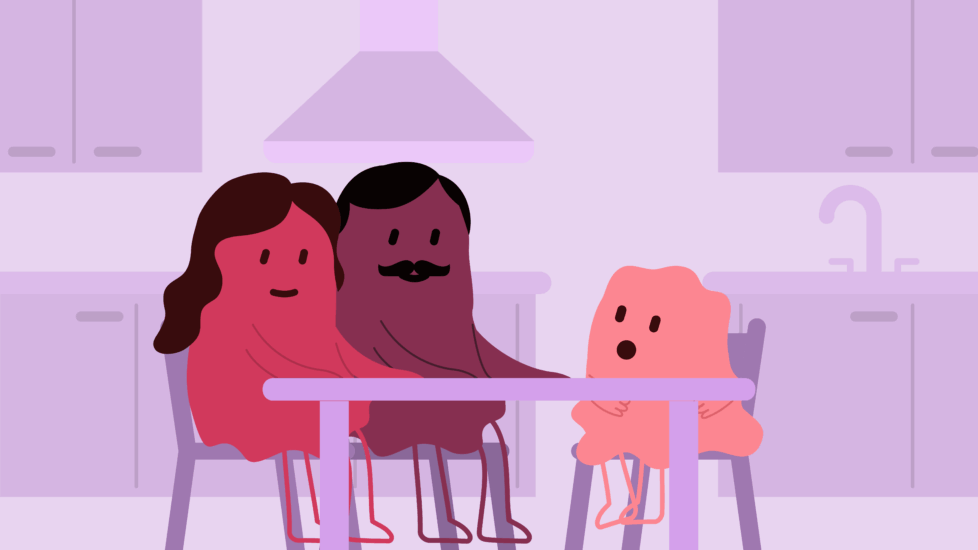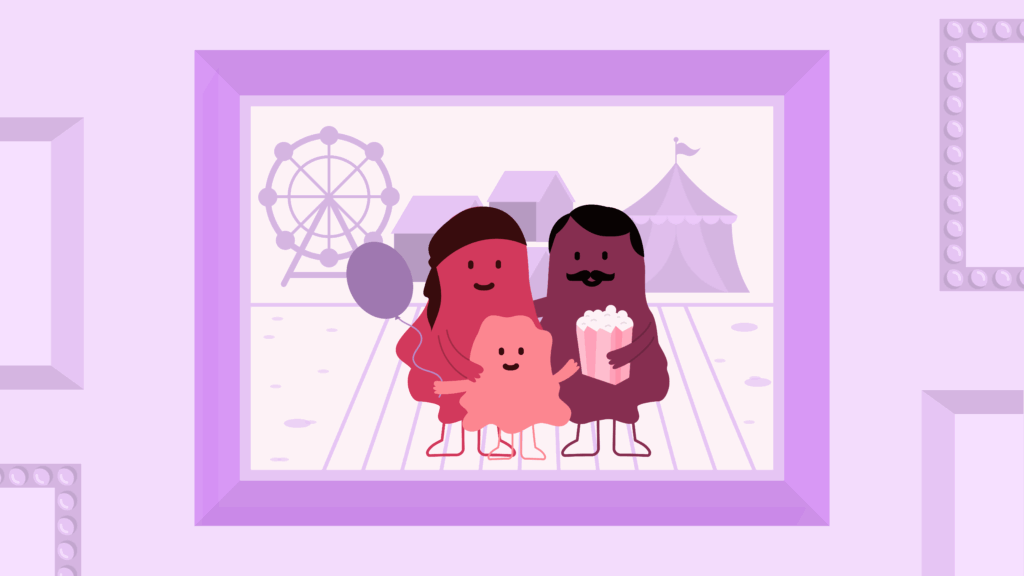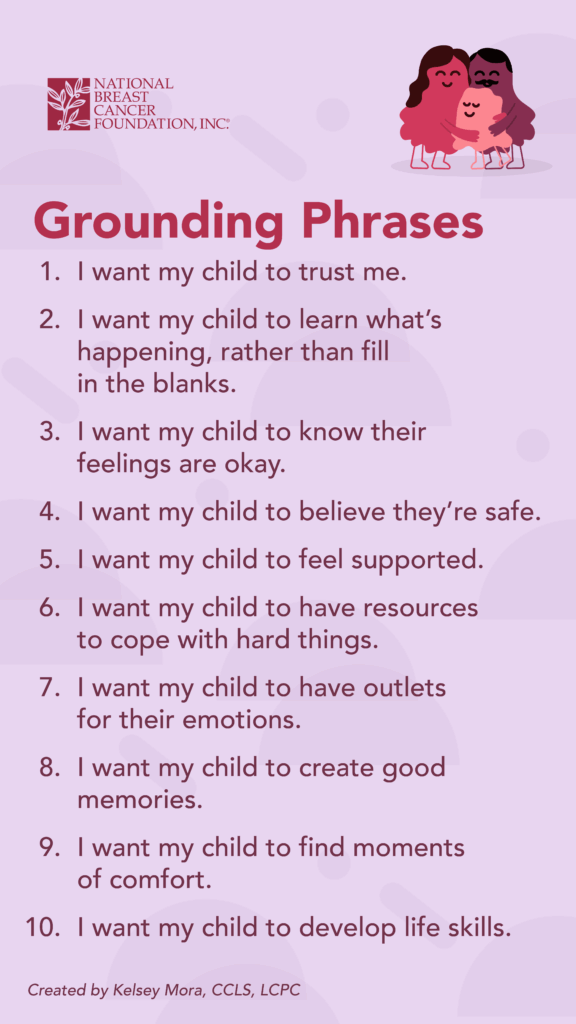


Written by Kelsey Mora, Certified Child Life Specialist (CCLS), Licensed Clinical Professional Counselor (LCPC), Chief Clinical Officer at Pickles Group, and author of The Dot Method: An interactive tool to teach kids about cancer.
Additional free resources for families facing cancer can be found at nbcf.org/parents. Click here to download a printer-friendly version of this blog post.
It’s hard to talk to kids about cancer, especially when you feel underprepared or overwhelmed. One of the first steps before any difficult conversation with children is to pause and check in with yourself. Identify your own support system and consider who might help you through these conversations. Give yourself time to process the topic as much as possible before you begin talking about it with children. It doesn’t mean you will feel “ready,” but you might feel just a bit more prepared.
Here are 10 grounding phrases to use to remind yourself why it’s worth having these hard conversations with your children—about cancer and everything in between.
It may feel easier to avoid the topic of cancer altogether. But kids are perceptive. They notice changes, overhear conversations, and feel the shift in energy. Honest conversations help build and maintain trust. When children know they can come to you for information and support, they don’t have to make sense of things on their own.
When children don’t receive direct information, they often try to piece things together themselves. That might mean relying on peers, overheard snippets, or even the internet. All of this can lead to misunderstandings or distressing misinformation. Your words can help anchor them in truth, with information that’s specific to your family’s experience.

Talking about cancer makes space to talk about feelings. When kids see you express emotions and are encouraged to share their own without judgment, they learn that feelings are normal, safe, and something they can talk about too.
Cancer is scary, especially when it’s not talked about. Kids are often more scared by what they don’t understand, and their nervous system needs to feel a sense of safety even when things are uncertain, challenging, or different. Children feel more secure when they’re given honest, age-appropriate explanations for the changes they notice in daily life, routines, surroundings, or loved ones.
You can’t control the diagnosis or everything that happens during treatment. But you can control how supported your child feels throughout the process. Showing up with honesty, presence, and care helps your child feel less alone, even in uncertain times. You may even consider a peer-to-peer support group for your child to help create a sense of belonging with other kids who can relate to their situation.

Talking about cancer also opens up space to talk about coping. Naming strategies, modeling emotional expression, and creating comforting rituals help build lifelong skills that your child can carry into this and other challenges. When families acknowledge that it’s okay not to be okay sometimes and that there are ways to work through hard moments, kids feel more empowered. They begin to understand that big feelings are manageable, and that support, tools, and connection are available to help them through.
Click here for a list of recommended books about cancer for children and adults.
Kids need ways to express emotions through play, art, movement, or conversation. Talking about cancer, feelings, and coping can open up healthy outlets. Try normalizing different coping styles and encouraging your child to discover what works for them. And when mistakes happen, model what repair looks like. For example: “I’m sorry I yelled. I was feeling really frustrated. I’m going to try squeezing my fists and taking deep breaths next time.”
Even in hard seasons, there can be moments of connection, joy, and meaning. Open conversations allow families to create good memories rooted in honesty and togetherness, instead of confusion or fear. They also help families prioritize what matters most and carve out time for those things, even if they’re small and simple.

Comfort can come from routines, favorite activities, or simply being close to you. When kids understand what’s happening, it’s easier for them to return to their sources of comfort. Many children also feel grounded when they can continue their familiar roles and responsibilities, like being a student, a sibling, or just a kid. Some may also find purpose in being able to contribute or help in some way.
These conversations help kids build tools they’ll carry with them throughout life: communication, courage, emotional awareness, and resilience. It’s not about fixing everything. It’s about walking through hard things together, with support and openness.
The next time you find yourself entering a difficult conversation about cancer with your child, pause. Take a breath. Ask yourself who can support you through it. And then, remind yourself why it matters. Because when you show up with honesty and care, your child feels supported, comforted, less scared, and more confident. And that makes all the difference.
Click here to download these phrases as an empowering reminder for when you face hard conversations with your children.

NBCF is here for parents facing cancer; you are not alone in this journey. For more free resources to help guide children through a parent’s cancer diagnosis, read:
In addition to NBCF, there are other groups dedicated to the emotional well-being of children and families who have a parent facing cancer. Below are a few organizations to consider partnering with on this journey.
National Breast Cancer Foundation is here for you—and your family—as you navigate a breast cancer diagnosis. Visit our website to learn about NBCF breast cancer support groups, obtain free educational resources, or find a patient navigator in your area.
Donations are always appreciated, but there are lots of great ways to get involved.